Lasciando il matrimonio di Elmo
[NB: check the byline, thanks. /~Rayne]
My moderation team counterpart bmaz is a bit put out at people who are flouncing Twitter dramatically. We don’t see eye to eye about the topic of departing Twitter now. I’m among those who are unwinding their accounts now that Elmo has been forced into marrying Twitter, Inc.
Elmo’s turbulent management style is one reason I’d like to leave. Who knows what any given day will yield – will a new policy pop up out of the blue insisting users must pay for services to which they’ve become accustomed for years?
Security is another matter of concern, and in saying security I mean I have my doubts about personal data security now that Elmo has capriciously announced he’s going to fire 75% of Twitter’s personnel…and now 50% this Friday…and maybe with or without compliance with state or federal WARN Act.
Does anyone really think Twitter personnel are at top form right now when they’re looking over their shoulder for their pink slip? Could you blame them if they aren’t?
But my biggest single reason for wanting to leave Twitter is this: I do not want to be Elmo’s product.
~ ~ ~
Artist Richard Serra said of his experience viewing the painting Las Meninas (c. 1656) by Diego Velázquez:
“I was still very young and trying to be a painter, and it knocked me sideways. I looked at it for a long time before it hit me that I was an extension of the painting. This was incredible to me. A real revelation. I had not seen anything like it before and it made me think about art and about what I was doing, in a radically different way. But first, it just threw me into a state of total confusion.”
When one first sets eyes upon the painting, it appears to be one of the young Infanta Margaret Theresa of Spain and her ladies in waiting, standing next to a portraitist at work. It takes a moment to realize that the portraitist isn’t painting the Infanta but whomever the Infanta is observing, and yet another moment to realize the subject of the portrait and the Infanta’s gaze can be seen in the mirror behind them.
The painting’s observer will then realize they are standing in for the Infanta’s parents who are being painted by the portraitist — and the painting is a self portrait of Velázquez at work. The painting’s observer is a proxy who has not fully consented to their role but nonetheless becomes the subject of the painter at work.
It is this same inversion which must be grasped to understand why I refuse to be Elmo’s product.
I know that I am not Twitter’s customer. I’m not the consumer.
If I remain I am the consumed in Elmo’s forced marriage scenario.
~ ~ ~
Serra and director Carlota Fay Schoolman produced a short film in 1973 entitled, “Television Delivers People.” It was considered video art, using a single channel with a text scroll to critique television.
This excerpt explains the relationship between the audience and television:
Commercial television delivers 20 million people a minute.
In commercial broadcasting the viewer pays for the privilege of having himself sold.
It is the consumer who is consumed.
You are the product of t.v.
You are delivered to the advertiser who is the customer.
He consumes you.
The viewer is not responsible for programming —
You are the end product.
Social media is mass media.
Social media, however, doesn’t serve audiences to advertisers alone. Given the right kind of incentives and development, audiences can be bought for other purposes.
There are almost no regulatory restrictions on audiences being identified, aggregated, bought, and resold, and very little comprehensive regulation regarding data privacy.
Elmo so far doesn’t appear to understand any of this between his uneducated blather about free speech and his ham handedness about Twitter’s business model.
I do not want to be sold carelessly and indifferently by Elmo.
~ ~ ~
If you are a social media user, even if validated or a celebrity with millions of followers, you are the product. You are being sold by the platform to advertisers.*
There may even be occasions when you’re not sold but used – recall the access Facebook granted to researcher Aleksandr Kogan in 2013 as part of experimentation, which then underpinned the work of Cambridge Analytica ahead of the 2016 election.
Facebook was punished by the Federal Trade Commission for violating users’ privacy, but there’s still little regulatory framework to assure social media users they will not be similarly abused as digital chattel.
What disincentives are there to rein in a billionaire with an incredibly short attention span and little self control now that he’s disbanded Twitter’s board of directors? What will prevent Elmo from doing what Facebook did to its users?
I’ve raised a couple kids with ADD. I don’t want to be on the other end of the equation, handled as digital fungible by an adult with what appears to be ADD weaponized with narcissism.
I deserve better.
I’m only going to get it if I act with this understanding, attributed again to Serra:
If something is free, you’re the product.
~ ~ ~
By now you should be used to hearing this, but I’m leaving this marriage, Elmo.
Treat this as an open thread.
__________
* We do not sell data about our community members.

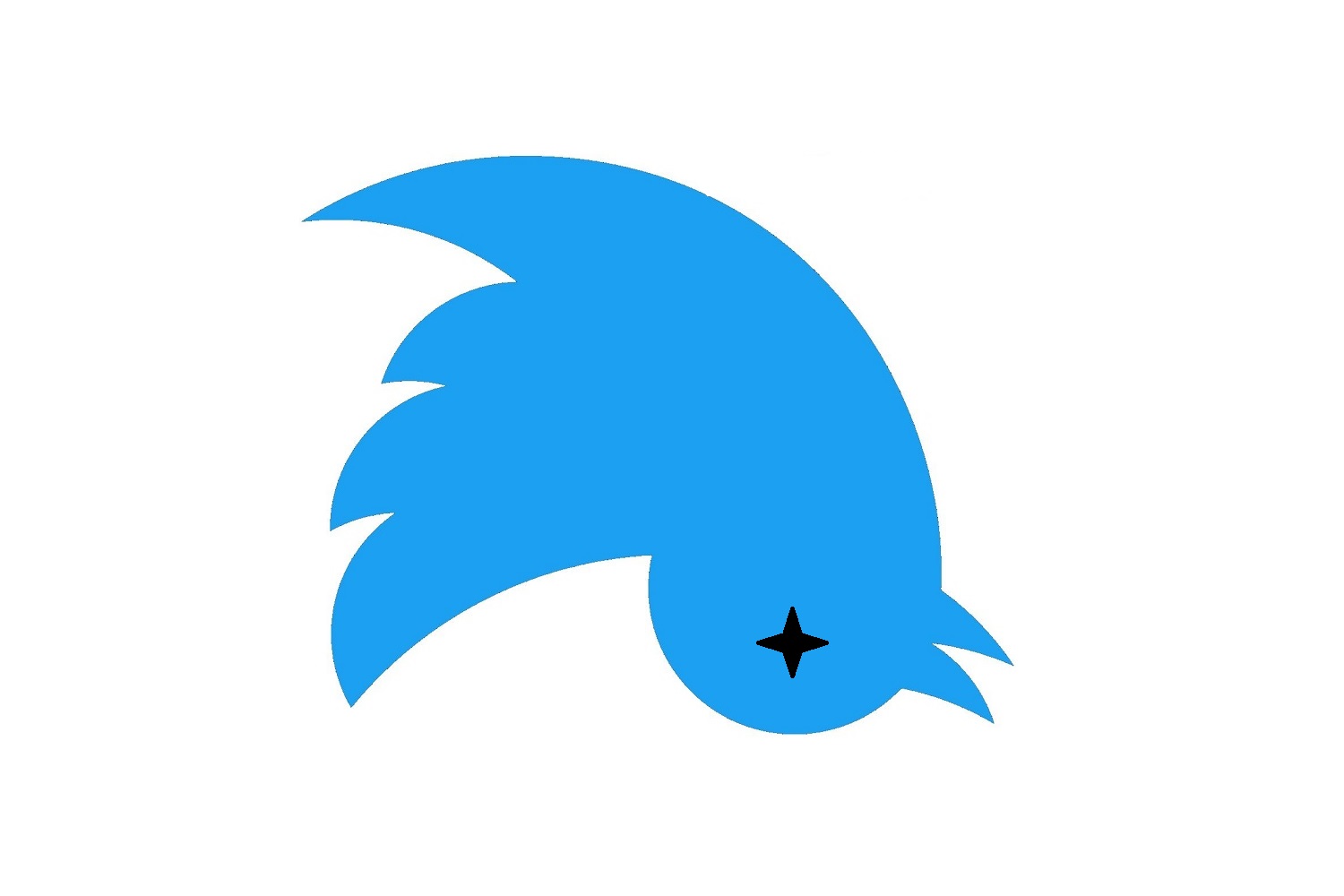
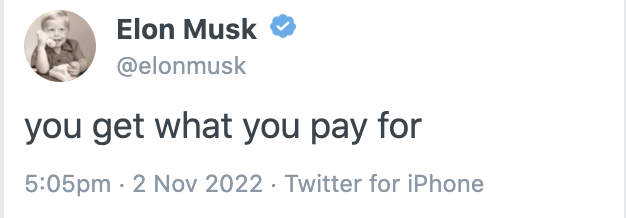
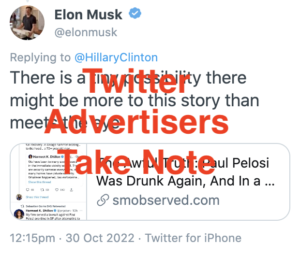
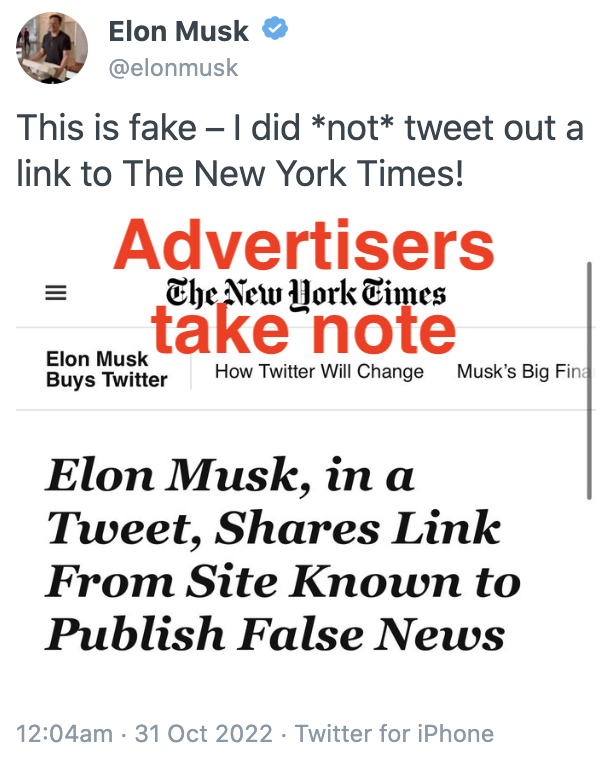
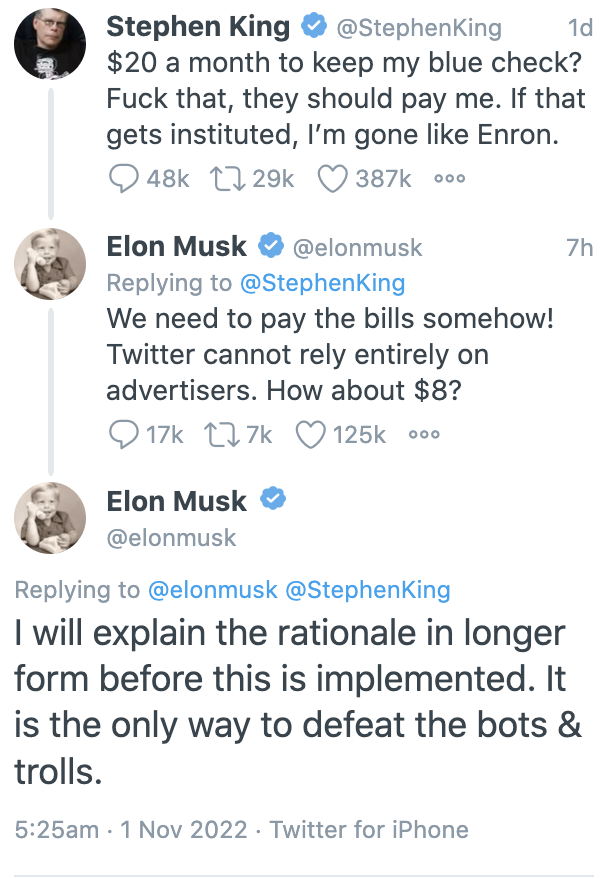
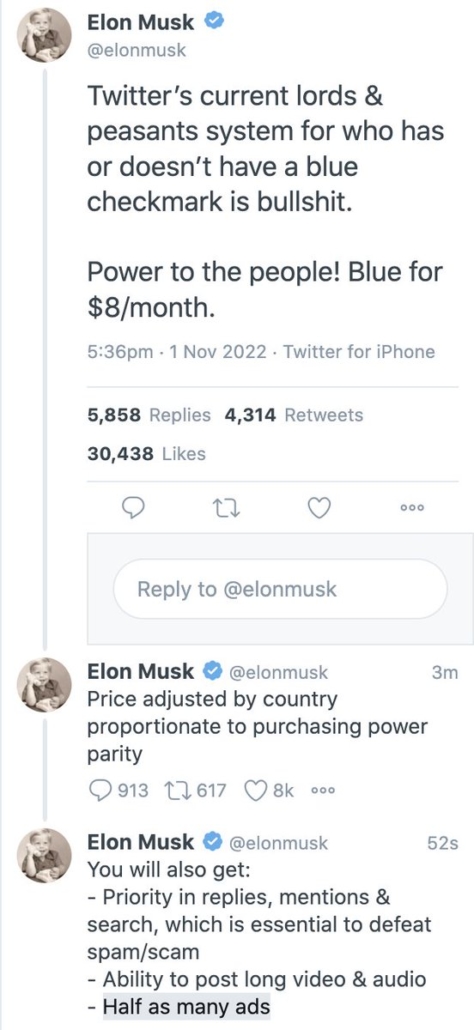
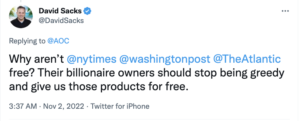

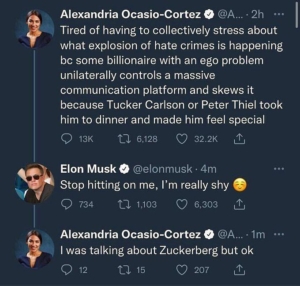
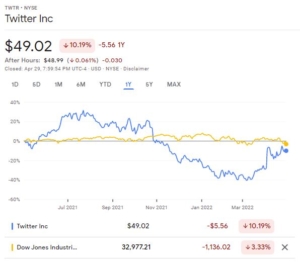
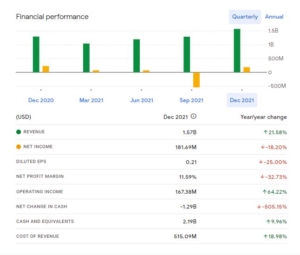
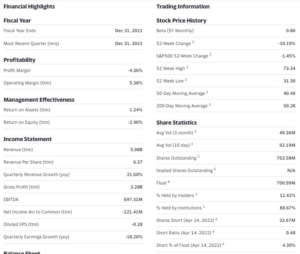
![[Photo: Paul Rysz via Unsplash]](https://www.emptywheel.net/wp-content/uploads/2017/08/SolarEclipse_PaulRysz-Unsplash.jpg)